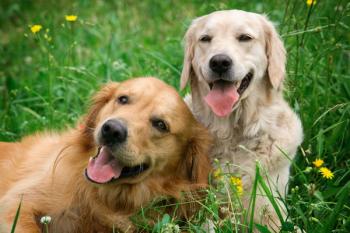
- Vetted June 2019
- Volume 114
- Issue 6
Grain-free diets: Whats the hype?
These diets are everywhere and causing controversy in the media lately. Whats the real deal with them?
Grain-free diets. They're everywhere and veterinary clients are constantly asking if they're a better option for their pets. Let's discuss what these diets are and why your clients want to use them.
Grains are dry seeds harvested from flowering plants with one or two seed leaves. Examples include corn, oats, quinoa, rice, barley and wheat. Some pet owners choose to feed grain-free diets with the idea that dogs and cats evolved eating a limited carbohydrate diet. While this is certainly true for cats, domestic dogs have more genes associated with carbohydrate digestion and metabolism than wolves do. While many pet owners equate grain-free with carbohydrate-free, the reality is grains are simply replaced with other carbohydrate sources like potatoes and legumes (e.g. green peas, chickpeas, lentils).
Many pet owners also hold the misconception that most food allergies are attributable to grains, such as corn and wheat, in the diet. However, meat sources such as beef, dairy, poultry (dogs) and fish (cats) are more likely to be the allergy culprit. While some animals can develop allergies to grains, the treatment of food allergies should happen under the care of veterinarians so pet owners understand how to perform a proper dietary elimination trial.
Recently, there appears to be
Are grain-free diets superior to traditional pet foods containing corn, rice and oats? The short answer is no. Are grain-free diets harmful? The short answer is probably not, but it may depend on the company manufacturing the diet. When your client asks if a pet should eat a grain-free diet, there is usually not a medical benefit so they may be paying a premium for marketing. However, if an animal is currently thriving on a grain-free diet and the pet owner is happy with the food, I would not push to change their current feeding plan.
Articles in this issue
over 6 years ago
Veterinary practices: Show us your ticks!over 6 years ago
12 self-care tips that don't involve bubble bathsalmost 7 years ago
Top 10 materials update for veterinary hospitalsalmost 7 years ago
Beyond brushing pets' teethalmost 7 years ago
Getting clients to take recommendations seriouslyNewsletter
From exam room tips to practice management insights, get trusted veterinary news delivered straight to your inbox—subscribe to dvm360.



